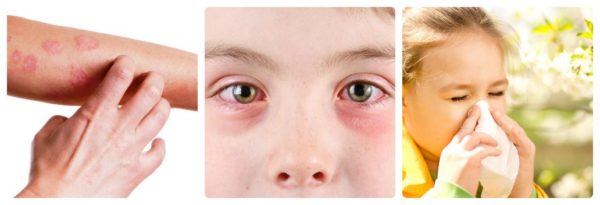
Can a child be allergic to a turtle, symptoms of an allergy to red-eared and land turtles

Turtles, like other reptiles, are often considered hypoallergenic animals by default, because they lack wool, fluff, and mucous secretions on the skin. It is these factors that usually become an obstacle if you want to have a kitten, parrot or aquarium fish. But allergy to turtles exists, although it is much less common.
What causes a reaction
As in the case of other animal species, protein enzymes cause allergies to turtles. The common belief that the reaction is to fluff or wool is erroneous – the immune system reacts upon contact with proteins that enter the hairs through the saliva of the animal. The turtle does not lick itself, but contact with saliva on human skin when bitten can cause a reaction.

Also in reptiles, protein elements reach a high concentration in waste products. Therefore, in most cases, an allergy to a turtle manifests itself in the owner of the pet, who is in contact with the animal all the time and cleans the terrarium.

IMPORTANT: The most common allergy is to the red-eared turtle, although there are no significant differences between the species. Due to feces into the water, the shell and skin of the water turtle usually always bear traces of protein secretions. The evaporation of heated water in the aquaterrarium also plays a role – a small part of the protein elements dissolved in it can enter the lungs when breathing. The reaction to the land turtle is less common, because when it is kept, a person is less in contact with the irritant.
Symptoms
The presence of an allergy can usually be determined soon after the appearance of a turtle in the house. As a result of daily contact with a pet, the following symptoms appear:
- redness, itching of the skin, dryness, peeling;
- the appearance of small blisters (as with a nettle burn);
- abundant secretions of the lacrimal glands, or vice versa, their drying out;
- sensations of itching, dry mucous membranes, sand in the eyes;
- nasal congestion, nasal discharge, sneezing;
- shortness of breath, wheezing in the chest, cough;
- redness, sore throat, swelling of the tongue (with a strong reaction, anaphylactic shock and suffocation may begin).

Turtle allergy symptoms can often be mistaken for an incipient respiratory illness. But if ARVI or bronchitis is difficult to treat, and before there was no tendency to them, this may be a sign of a reaction to the animal. Sometimes reactions to a new pet don’t show up right away, especially if the person’s immune system is strong. Therefore, the sudden onset of allergies after a serious illness or in a state of stress that has weakened the body’s defenses is normal.
IMPORTANT: Signs are more pronounced in a child than in an adult. The immune system of children is weaker and is in the formation mode, reacting more sharply to new stimuli.
Ways to protect
If symptoms occur, doctors recommend finding a new owner for the animal as soon as possible. But in the case of a tortoise, it is quite easy to reduce exposure to the allergen, so it is not always necessary to abandon the pet. To minimize the risk, it is recommended to follow a number of rules:
- increase the frequency of cleaning – try to immediately remove the excrement, change bedding or water more often;
- when cleaning the terrarium, you need to use rubber gloves and a respirator mask to protect yourself from contact with excrement (it is better to entrust the cleaning to a healthy person);
- allocate a certain place for keeping the turtle and its walks, access to other areas of the apartment should be closed;
- often ventilate the room where the terrarium stands;
- daily do wet cleaning of the part of the room where the animal is kept – it is better to wipe all surfaces with products containing chlorine;
- all pets should wash their hands thoroughly after contact with a pet so that enzymes do not get on other surfaces.
In case of serious symptoms or the development of an allergy in a child, it is better to find an opportunity to give the animal away. Constant contact with an irritant can cause deterioration and weaken the immune system.
Treatment
When symptoms of allergies appear, it is imperative to undergo an examination by a specialist immunologist. The doctor will conduct tests and tests to identify the irritant protein and prescribe the necessary medications for a course of drug therapy. Some drugs will have to be taken on a regular basis, others will relieve symptoms with severe manifestations of allergies. Three types of drugs are commonly used for treatment:
- Antihistamines – during the disease, histamine is released in large quantities, provoking the onset of inflammation and swelling, special drugs reduce its release to normal and relieve the symptoms of an attack;
- Steroids – hormonal agents that help quickly relieve swelling and spasms of smooth muscles, restore the ability to breathe; used for severe attacks;
- Preparations for the removal of external symptoms – drops for the eyes and nose, ointments for the skin; special antihistamine nasal sprays help to minimize the reaction to inhaled protein molecules.
To alleviate the symptoms and improve the condition of the skin will help infusions and baths of medicinal herbs – calendula, chamomile, succession. To cleanse the sinuses, washing with warm salt water is used. To relieve swelling of the respiratory tract, inhalation is done with an infusion of eucalyptus and mint.
IMPORTANT: Allergy is a complex progressive disease that should not be left to chance. Self-medication and continued interaction with the irritant can lead to serious complications or even end in the death of the patient.
Allergy to turtles
3 (60%) 8 votes





